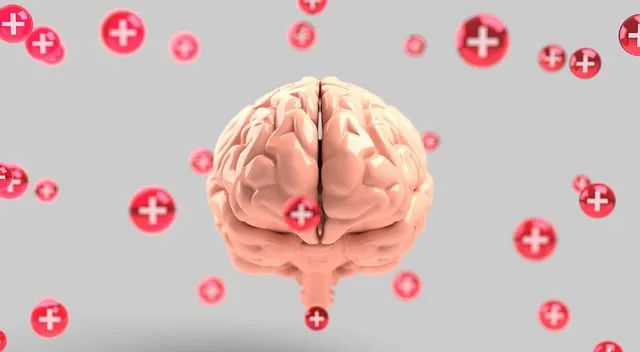In Colorado Springs, Kaiser Permanente leads efforts to improve mental health representation by combating stereotypes through accurate media portrayals. They advocate for positive narratives that foster a sense of belonging and encourage help-seeking without judgment. By integrating compassion cultivation, self-esteem improvement, and stress reduction methods in media, they aim to transform lives, enhance mental health awareness, and create a supportive community. Collaborating with media outlets, Kaiser Permanente educates content creators about evidence-based practices, reduces stigma, and encourages open dialogue about mental wellness.
In Colorado Springs, as across the nation, media portrayal of mental illness significantly impacts public understanding and awareness. This article explores the challenge of inaccurate or insensitive media depictions and proposes strategies for more accurate and compassionate narratives, particularly through the lens of local efforts by Colorado Springs’ Kaiser Permanente. By examining the current state of mental health representation in media, identifying gaps, and collaborating with outlets, we can foster positive change in public perception, ultimately enhancing support for those facing mental health challenges in our community.
- Understanding the Impact of Media Portrayal on Mental Health Awareness in Colorado Springs
- The Current State: How Kaiser Permanente Addresses Mental Illness Representation
- Identifying Challenges: Gaps in Media Depictions of Mental Health Issues
- Proposed Solutions: Strategies for More Accurate and Compassionate Media Portrayals
- Implementing Change: Collaborating with Media Outlets to Improve Mental Health Narratives
Understanding the Impact of Media Portrayal on Mental Health Awareness in Colorado Springs

In Colorado Springs, media portrayal plays a significant role in shaping public understanding of mental health. Kaiser Permanente’s initiatives in this realm are pivotal, aiming to dispel stereotypes and promote empathy through accurate representation. The impact is profound; positive media narratives can foster a sense of belonging for individuals struggling with their mental well-being, encouraging them to seek help without fear of judgment. Conversely, negative or missing representations contribute to stigma, making it harder for residents to access essential services like those offered by Kaiser Permanente in Colorado Springs.
By integrating Compassion Cultivation Practices and emphasizing Self-Esteem Improvement alongside Stress Reduction Methods, media can transform lives. These strategies not only enhance mental health awareness but also encourage a supportive community. In Colorado Springs, where the need is evident, mindful media representation acts as a catalyst for positive change, ensuring that those facing mental health challenges feel seen, heard, and supported in their journeys.
The Current State: How Kaiser Permanente Addresses Mental Illness Representation

In the current landscape of mental health awareness, organizations like Kaiser Permanente in Colorado Springs are at the forefront of challenging stereotypes and improving representation. They recognize that media plays a pivotal role in shaping societal perceptions, and thus, have taken proactive measures to address this issue. Through various initiatives, Kaiser Permanente aims to portray accurate and diverse narratives surrounding mental illness.
The healthcare provider offers comprehensive programs focusing on Depression Prevention, emphasizing the importance of early intervention and support. Furthermore, they conduct regular Healthcare Provider Cultural Competency Training to ensure staff are equipped with the knowledge to handle patients from different backgrounds. By promoting emotional well-being through these techniques, Kaiser Permanente in Colorado Springs is making significant strides in normalizing conversations about mental health while challenging outdated representations in media.
Identifying Challenges: Gaps in Media Depictions of Mental Health Issues

In the realm of mental health representation in media, there are several challenges that require attention, especially when considering prominent healthcare providers like Colorado Springs Kaiser Permanente and their commitment to public awareness. One significant gap lies in the nuanced portrayal of various mental health conditions, often reducing complex disorders to simplistic stereotypes. For instance, depression is frequently depicted as solely sadness, overlooking its multifaceted nature and the diverse symptoms experienced by individuals. Similarly, anxiety disorders are sometimes exaggerated or trivialized, hindering public understanding of their impact on daily life. These oversimplifications contribute to stigma and can deter those in need from seeking help.
Furthermore, media often fails to showcase recovery stories authentically, leaving audiences with a skewed perspective. The absence of hopeful narratives perpetuates the notion that mental illness is insurmountable, especially when coupled with rare representations of diverse demographics. Compassion cultivation practices, burnout prevention strategies, and empathy-building initiatives are essential to address these gaps. By incorporating more accurate and diverse portrayals, media can foster a culture of understanding and support for individuals navigating mental health challenges, as advocated by organizations like Colorado Springs Kaiser Permanente.
Proposed Solutions: Strategies for More Accurate and Compassionate Media Portrayals

To address the challenge of mental illness representation in media, several proposed solutions focus on enhancing accuracy and compassion in portrayals. Organizations like Colorado Springs Kaiser Permanente have been at the forefront of promoting evidence-based practices in media storytelling. This involves collaborating with mental health experts to ensure that conditions are depicted realistically, avoiding stereotypes often found in popular culture. By integrating input from psychiatrists, psychologists, and therapists, media creators can produce more nuanced characters and storylines that reflect the complexity of mental health issues.
Additionally, these strategies emphasize the importance of crisis intervention guidance within media content. This includes providing resources for viewers who may be struggling with similar challenges and directing them towards reputable support systems. Promoting open dialogue about mental wellness through sensitive storytelling can help reduce stigma and encourage individuals to seek appropriate care, mirroring successful stress reduction methods that have been implemented in various communities, including those served by Kaiser Permanente in Colorado Springs.
Implementing Change: Collaborating with Media Outlets to Improve Mental Health Narratives

In an effort to challenge negative representations and reduce stigma associated with mental illness, collaborating with media outlets is a crucial step forward. Organizations like Colorado Springs Kaiser Permanente can play a pivotal role in this process by engaging in open dialogue with news agencies, television networks, and streaming platforms. By providing educational resources and sharing expert insights, these institutions can guide content creators towards crafting more accurate and sensitive narratives about mental health struggles. Such collaboration can significantly impact the design of mental health education programs, fostering a more inclusive and understanding society.
This partnership involves offering workshops, hosting roundtable discussions, and sharing best practices to ensure media stories humanize individuals with mental illness. It’s not just about correcting misconceptions but also boosting confidence among those affected by mental health issues. Through these collaborative efforts, the community can collectively work towards reducing stigma, promoting empathy, and encouraging help-seeking behaviors in a supportive environment.
In Colorado Springs, where Kaiser Permanente has been at the forefront of mental health advocacy, addressing the representation of mental illness in media is a vital step towards fostering understanding and reducing stigma. By identifying challenges in current depictions and implementing strategies for more accurate and compassionate narratives, we can significantly impact public perception. Collaborating with media outlets to ensure responsible storytelling about mental health issues is key to creating a more inclusive and supportive environment for those living with these conditions in Colorado Springs and beyond.






